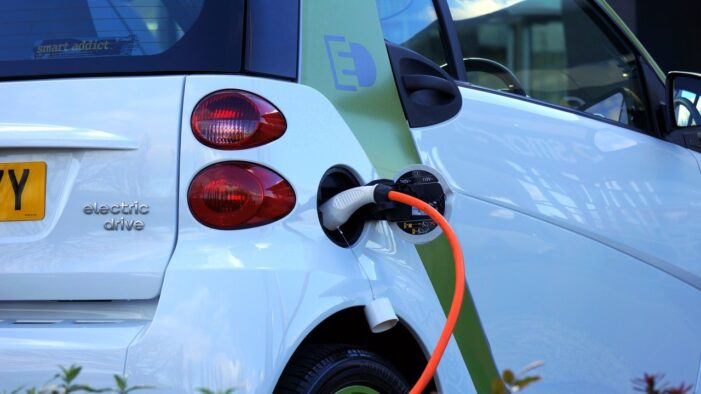By Dominica News Online
The Government of Dominica is currently hosting a series of workshops to explore the possibilities for a national Low Carbon Transport program.
The project was delivered with the partnership of Gutter Consulting and made possible through the financial support of the Green Climate Fund (GCF) in the sum of 10 million dollars.
The workshops are being organized by the Ministry of Planning, Economic Development, Climate Resilience, Sustainable Development, and Renewable Energy.
“We are going to have better financial conditions for people who want to buy an electric car…,” Project Manager at Grutter Consulting, Verena Arauz, said while addressing the opening ceremony on Monday. “We are looking into the Maritime transport as well: boats, engines, outboard engines to test out to see how it works out in the sea. That’s for phase one and after 2025, we are looking into having some 2000 electric vehicles on the island and by 2030, if everything goes well, the government will have incentives enough to say we are going to stop importing fossil fuel vehicles.”
She continued, “By then, hopefully the Geothermal Plant will start working and we are going to have 100% renewable energy.”
Arauz believes that for such a small island, too many people own a car in Dominica, “and that is something that needs to shift.“
She said that there are 40,000 registered vehicles with many of them not being removed from the registry, “but licensed vehicles, we have 18,000 according to the statistics office.”
“The vehicles are old; the idea is not to have more vehicles, but to be replacing them,” Arauz stated.
The Consultant is of the view that a program needs to be put in place in order to get the scrap vehicles out of the island.
“I saw that there were some things done after the hurricane, because you had many derailed vehicles, so there is some experience there, but there needs to be a scrapping program for the vehicles to actually leave the island…,” she stated.
Arauz also pointed out that if there is better public transportation, people might consider selling their old car, opting to not replace it with a new one.
“That’s the way you reduce the number of vehicles, but that’s a long shot,” she conceded. “That is not a problem only in Dominica; that’s a problem everywhere.”
Arauz added, “People once they get used to having a car it is very hard to shift to public transportation.”
Information from https://www.greenclimate.fund/document/low-carbon-transport-dominica states that the Nationally Determined Contribution has a target to reduce absolute Greenhouse Gas (GHG) emissions by 44.7% by 2030 compared to the emission level of 2014. The transport sector has the largest GHG emissions and is also the sector with the highest GHG growth. Transport emissions shall be reduced by 17% compared to the emission levels of 2014 (due to the strong growth of the transport sector the achievement of this target requires a 40-50% reduction of emissions compared to a Business as Usual trajectory).
Dominica will only be able to achieve its GHG transport target if the trend of increasing transport emissions can be reverted. A wide array of low-carbon transport measures is available including electric vehicles, low-carbon shipping, fostering of public transport, Non-Motorized transport etc. Gaps towards a viable low carbon transport strategy are related to (i) lack of a suitable database and transport / emission modelling (ii) lack of know-how and information to assess viable mitigation options for the transport sector (iii) lack of strategies and related policies to foster low carbon transport and (iv) financial and capacity knowledge gaps to implement low carbon transport strategies.
Dominica is making important steps towards a green electricity production which could form the backbone for an electrified transport system in the country. The country has also recently given tax incentives to hybrid and electric cars.
Direct beneficiaries of the readiness support are government institutions and private sector actors and other stakeholders involved in transport policies and transport services through improved knowledge on options, policies and business models for low-carbon transport.
When the project is implemented there will be a wider net of beneficiaries.
Air quality is a public good and improving air quality through low-emission transport systems improves the health and well-being of all citizens. Reduced reliance on fossil fuel imports also improves the resilience of the country towards external shocks and fuel delivery disruptions.

